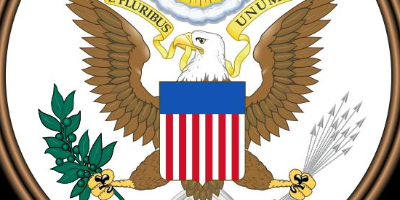jul 4, 1803 - Louisiana Purchase
Description:
A land deal between the US and France. In the early 17th century, the French took control of Haiti, an island colony in the Caribbean. There, they grew sugar nearly exclusively, as it was the most profitable crop that could be grown there at the time. However, the island was producing little of its own food, meaning that it had to be imported. In the early 18th century the French established New Orleans in modern-day southern Louisiana for the purpose of supplying Haiti with food. The Haitians revolted in 1791, and French Emperor Napoleon Bonaparte realized that they were on the cusp of losing the colony. Therefore, Louisiana stood to be of little further value to France.In 1803, they offered to sell all of Louisiana Territory (828,000 square miles) to the colony's neighbor, the US, for very little money ($15 million in 1803 dollars, $600 billion in 2017 dollars). The deal worked out to be around $18.11 per square mile in 1803, or around $566 dollars per square mile in 2015 dollars. US President Thomas Jefferson had mixed feelings about the deal. He was a strict constructionist, meaning that he believed the government should not exercise any powers not explicitly delegated to them in the Constitution. Purchasing land was not an explicit right of the federal government, and Jefferson feared making the deal would be hypocritical.
On the other hand, such a great deal was difficult to refuse. The US had had its eye on New Orleans for decades, and Jefferson figured that purchasing so much western land would allow his vision of an "empire of liberty" to flourish. That is, Jefferson viewed freedom as yeoman farmers working their own land and not having to answer to a master. Having so much land that was empty (at least, until the Native Americans were relocated) would allow ample room for everyone to have their own farm. Jefferson sidestepped the constitutionality issue by framing the deal as a treaty with a foreign government, which the Constitution explicitly gave the government the right to do. The purchase nearly doubled the size of the US, making it the largest territorial gain in the nation's history.
Public reactions to the purchase were mixed. One newspaper wrote, "we are to give money, of which we have too little, for land, of which we already have too much." However, most were enthusiastic when they realized they could have more land all to themselves (which was especially important when property ownership was a requirement for suffrage). There was also debate over what to do with the 60,000 French inhabitants of Louisiana, almost half of whom were former slaves. However, Napoleon insisted that all of them be granted US citizenship as part of the treaty. Unfortunately for Jefferson's vision, the Louisiana Purchase provided more territory for slavery to expand into, ruining his "empire of liberty." The Louisiana Purchase, along with the invention of the cotton gin, were the two major causes for the expansion of slavery throughout the 19th century.
The land was mostly unexplored by the US, so Jefferson sent explorers Meriwether Lewis and William Clark to chart it. The deal was not immediately helpful, as neither the British nor the Spanish nor the Native Americans living there recognized the treaty. Nevertheless, the land would come to be seen by all as American.
Added to timeline:
Date:
jul 4, 1803
Now
~ 222 years ago
